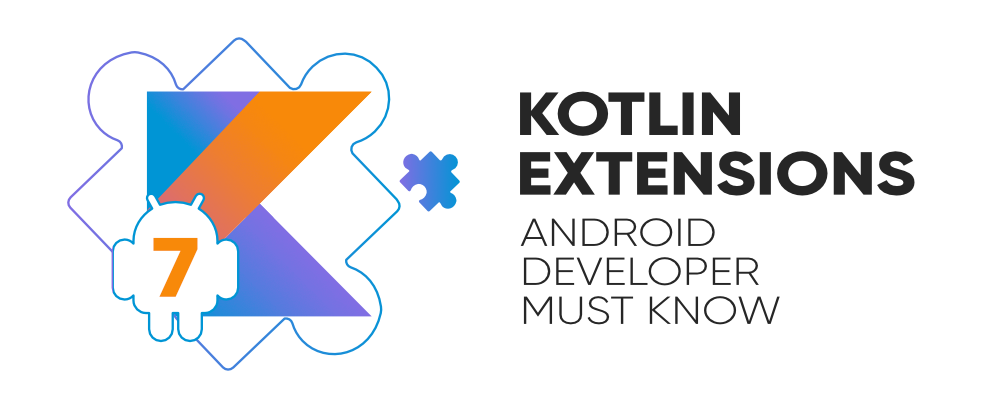Unlocking the Power of Kotlin Extensions for Android Development
Kotlin, the modern programming language for Android development, has gained significant popularity among developers due to its concise syntax, enhanced safety features, and seamless interoperability with existing Java code. Beyond its core language features, Kotlin offers a powerful toolset of extension functions and properties that can significantly enhance the productivity of Android developers. In this article, we will explore some essential Kotlin extensions that every Android developer should know and leverage in their projects.
Context Extensions
The Context class plays a crucial role in Android development, and Kotlin extensions can simplify its usage by providing convenient functions. With extensions, you can easily access system services, retrieve dimensions, launch activities, and perform other common tasks without repetitive code. For example, you can create an extension function that displays toast messages, reducing the boilerplate code required to show toasts throughout your app.
View Extensions
Extensions on the View class allow you to streamline UI-related operations. By creating extensions, you can handle click events, set visibility, apply animations, and perform other view-related tasks more efficiently. For instance, you can create an extension function that simplifies the process of setting click listeners, enabling you to define click behavior with a concise lambda expression.
String Extensions
Strings are fundamental to any Android app, and Kotlin extensions can make working with strings more intuitive. With extensions, you can validate email addresses, format strings, manipulate text, and more. For example, you can create an extension function to check if a string is a valid email address, enabling you to validate user input easily and ensure data integrity.
SharedPreferences Extensions
SharedPreferences are commonly used for storing small amounts of data in Android applications. Kotlin extensions can simplify the process of reading from and writing to SharedPreferences, reducing the verbosity of the code. For instance, you can create an extension function that writes a boolean value to SharedPreferences with a single line of code, making the usage of SharedPreferences more concise and readable.
Collections Extensions
Collections play a crucial role in Android development, and Kotlin extensions can enhance their functionality. With extensions, you can perform common operations like filtering, mapping, sorting, and more in a more concise and intuitive manner. For example, you can create an extension function that filters a list based on a custom condition, simplifying the process of filtering data in collections.
Retrofit Extensions
Retrofit is a popular networking library for Android, and Kotlin extensions can further enhance its usage. You can create extensions to simplify API calls, handle responses, and perform common networking tasks. For instance, you can create an extension function that encapsulates the process of making API requests with Retrofit, reducing boilerplate code and improving code readability.
LiveData Extensions
LiveData is a key component of the Android Architecture Components, and Kotlin extensions can make working with LiveData more convenient. You can create extensions to observe LiveData objects, handle transformations, and perform operations on the data. For example, you can create an extension function that simplifies the process of observing LiveData, making it easier to handle data changes and update the UI accordingly.
Parcelable Extensions
When passing data between activities or fragments, Parcelable is commonly used for efficient serialization. Kotlin extensions can simplify the process of implementing Parcelable for your data classes. By creating extensions, you can reduce the amount of repetitive Parcelable boilerplate code, making it easier to transfer complex objects between components of your app.
Coroutine Extensions
Coroutines have become a fundamental part of asynchronous programming in Kotlin. You can create extensions to simplify coroutine usage, handle common scenarios, and provide convenience functions for coroutine operations. For instance, you can create an extension function that launches a coroutine with a specific scope and context, making it easier to manage coroutines and their execution in different parts of your app.
Date and Time Extensions
Working with dates and times is a common task in Android development. Kotlin extensions can simplify date and time manipulation, formatting, and conversion operations. You can create extensions to perform tasks like formatting dates, calculating time differences, or parsing date strings with ease. These extensions can save you time and effort when dealing with date and time-related operations in your app.
Kotlin extensions offer Android developers a powerful set of tools to enhance productivity and write cleaner, more concise code. By leveraging extensions, developers can simplify common tasks, reduce boilerplate code, and enhance the functionality of core Android classes and concepts. Whether it’s simplifying Context operations, enhancing View interactions, manipulating strings, working with SharedPreferences, or enhancing collections functionality, understanding and utilizing Kotlin extensions can significantly streamline the development process and improve the quality of Android applications.











